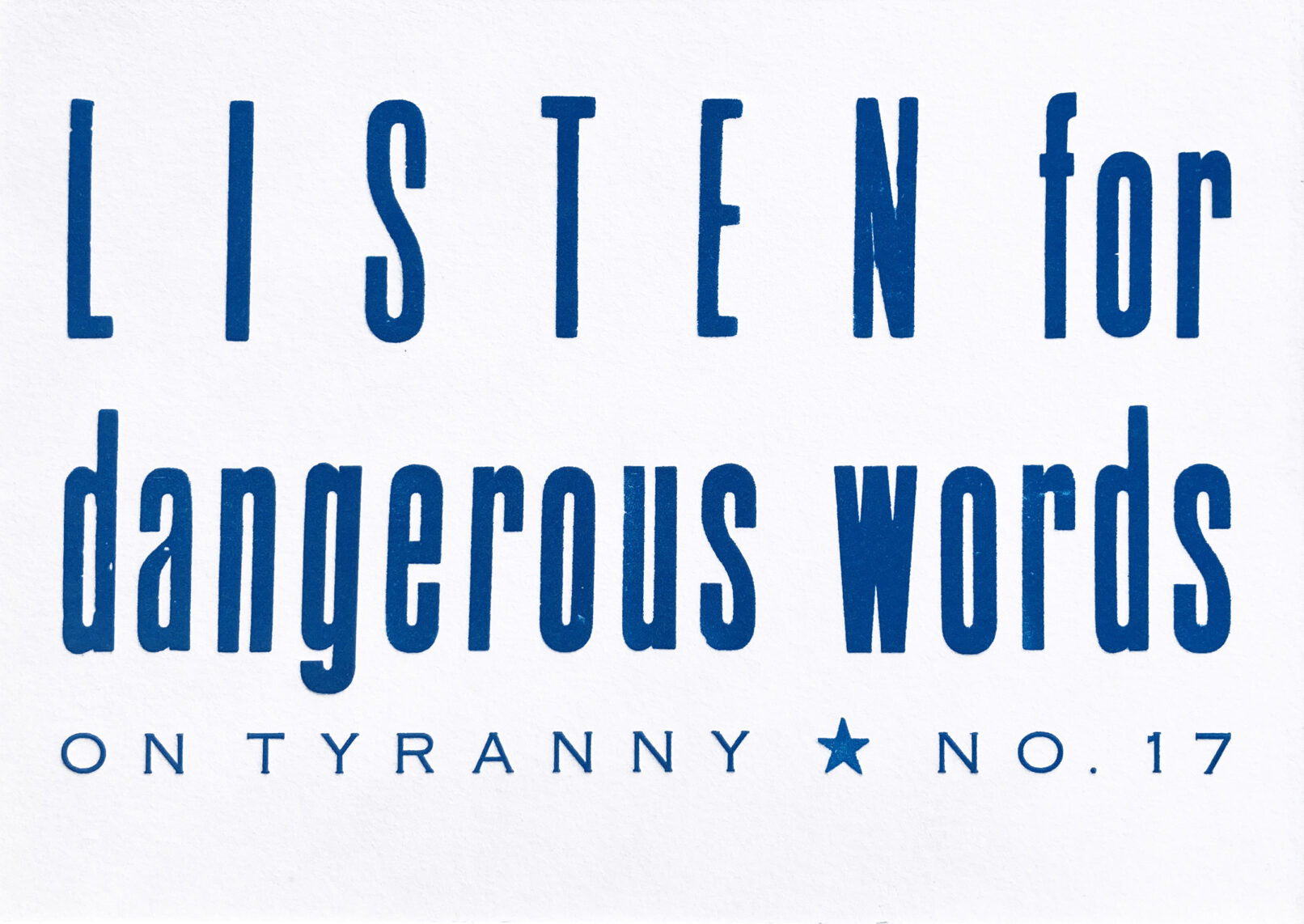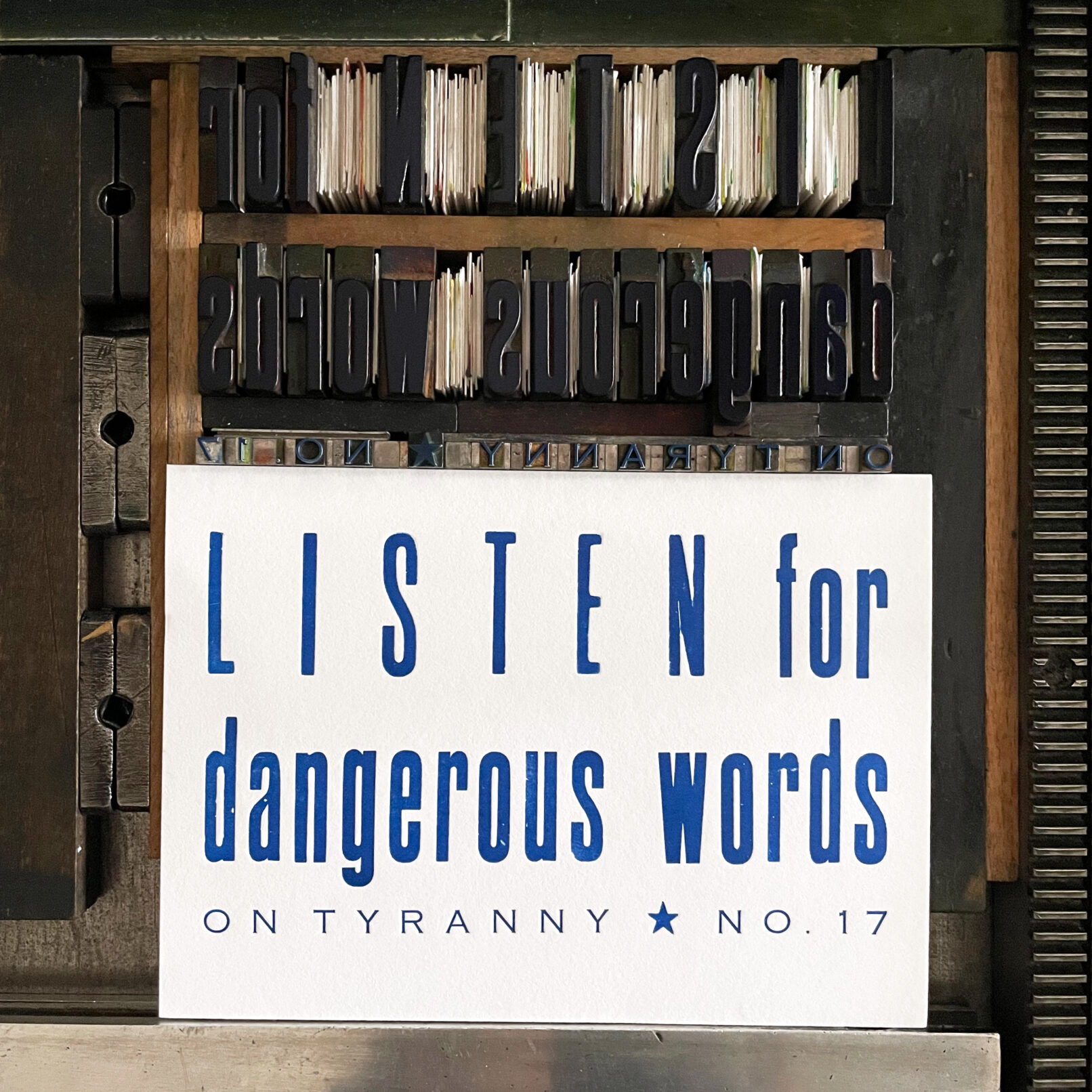“Be alert to the use of the words extremism and terrorism. Be alive to the fatal notions of emergency and exception. Be angry about the treacherous use of patriotic vocabulary.”
Timothy Snyder, “On Tyranny”
Dangerous language is language that is intentionally extreme in order to manipulate the general public into giving up their freedom in exchange for the promise of safety. For example, Snyder warns that moments labeled as emergencies or exceptions can, with a tyrant in power, become the norm. He notes that a “leader outmaneuvers his opponents by manufacturing a general conviction that the present moment is exceptional, and then transforming that state of exception into a permanent emergency (100).”
If we can recognize this tactic as it is happening, though, we can sometimes put a stop to it: Snyder gives an example of this in his 2021 YouTube video when he speaks of Trump’s attempt to remain in office via the “Stop the Steal” attempt on the U.S. Capitol. This was a manufactured emergency based on the lie that the election was not fair and that he was a victim. However, observers were able to recognize the way language was being used to manipulate the truth and put a stop to the coup. In the video, Snyder argues that dangerous words including “The Big Lie” are still with us, and we must get good enough at discerning when language is being used to manipulate us so we don’t fall prey to its deception and inadvertently give away our freedom.
Additionally, Snyder argues that “when tyrants speak of extremists, they just mean people who are not in the mainstream–as the tyrants themselves are defining that mainstream at that particular moment (101).” In other words, anyone not on their side is against them and is, therefore, labeled an extremist. This might almost be funny if it didn’t have such serious ramifications: we see this when Trump calls people “Marxists” or “communists” or “ultra-liberals.” But frankly, we also see this in any kind of rhetoric that relies on binary, black and white, “us vs. them” logic. This kind of oversimplified language is neither nuanced nor thoughtful, and it only harms public discourse.
Hear Timothy Snyder speak about this lesson on YouTube.
This lesson was letterpress printed with handset wood type and Pantone 300 ink on a Vandercook proofing press.


